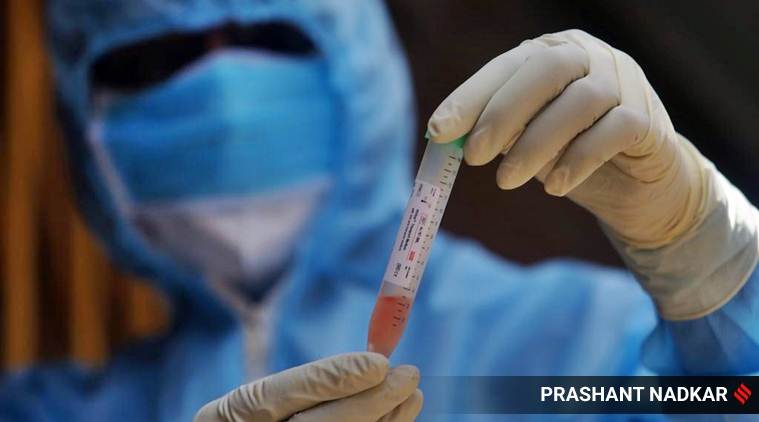 Although the estimates provide an idea of the number of people governments should prioritise for protective measures, not all individuals with these conditions would go on to develop severe symptoms if infected. (Representational)
Although the estimates provide an idea of the number of people governments should prioritise for protective measures, not all individuals with these conditions would go on to develop severe symptoms if infected. (Representational)
An estimated 1.7 billion people, 22 per cent of the world’s population, have at least one underlying health condition that could increase their risk of severe Covid-19 if infected, according to a modelling study that uses data from 188 countries, published in The Lancet Global Health journal. According to the study, in India, at least 21.5 per cent of the country’s population is estimated to have underlying health conditions that may increase their risk of severe Covid-19, if infected.
Explained: How India tests for Covid-19
Although the estimates provide an idea of the number of people governments should prioritise for protective measures, not all individuals with these conditions would go on to develop severe symptoms if infected. The authors estimate that 4 per cent of the world’s population (349 million of 7.8 billion people) would require hospitalisation if infected, suggesting that the increased risk of severe Covid-19 could be quite modest for many with underlying conditions.
Guidelines published by the World Health Organisation and public health agencies in the UK and USA identify the risk factors for severe Covid-19, including cardiovascular disease, chronic kidney disease, diabetes and chronic respiratory disease. The new study provides global, regional and national estimates for the number of people with underlying health conditions.
The authors based their estimates on disease prevalence data from the Global Burden of Diseases, Injuries and Risk Factors Study (GBD) 2017, UN population estimates for 2020 and the list of underlying health conditions relevant to Covid-19, as defined by current guidelines.
Globally, less than 5 per cent of people aged under 20 years, but more than 66 per cent of those aged 70 and above, have at least one underlying condition that could increase their risk of severe Covid-19. Among the working age population (15 to 64 years), 23 per cent are estimated to have at least one underlying condition.
“As countries move out of lockdown, governments are looking for ways to protect the most vulnerable from a virus that is still circulating. We hope our estimates will provide useful starting points for designing measures to protect those at increased risk of severe disease. This might involve advising people with underlying conditions to adopt social distancing measures appropriate to their level of risk, or prioritising them for vaccination in the future,” Associate Professor Andrew Clark from the London School of Hygiene and Tropical Medicine (LSHTM), UK, said in a statement.